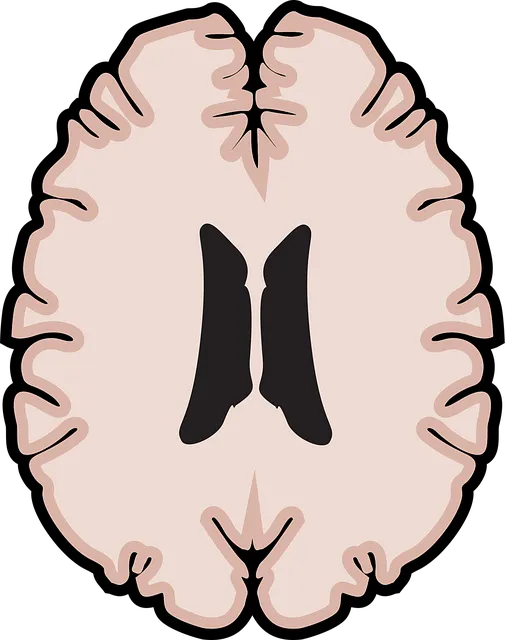Parker Kaiser mental health classes enhance emotional intelligence through self-awareness, empathy, and effective communication. They teach emotion recognition, management techniques, and active listening for stress reduction, relationship improvement, and better decision-making. These skills foster deeper connections, boost well-being, and equip professionals to handle complex cases ethically.
Emotional intelligence (EQ) is a powerful tool for navigating life’s complexities. This comprehensive guide explores practical strategies for building EQ, drawing insights from the Parker Kaiser Approach and leveraging techniques from mental health classes. By understanding emotions, cultivating empathy, enhancing communication, and developing resilience, individuals can foster deeper connections and lead more fulfilling lives. Discover actionable steps to boost your emotional intelligence today.
- Understanding Emotional Intelligence: The Parker Kaiser Approach
- Identifying and Managing Emotions: Tools from Mental Health Classes
- Empathy Development: Enhancing Connections Through Emotional Awareness
- Effective Communication: Expressing Feelings Constructively
- Building Resilience: Navigating Life's Challenges with Emotional Intelligence
Understanding Emotional Intelligence: The Parker Kaiser Approach

Understanding Emotional Intelligence is a fundamental step in personal growth and development. The Parker Kaiser Approach emphasizes self-awareness as a cornerstone of this process. Through interactive mental health classes, individuals learn to recognize their own emotional responses, a crucial skill for managing stress and building resilience. This proactive approach not only enhances overall well-being but also fosters better relationships by promoting empathy and understanding in personal interactions.
The Parker Kaiser method delves into the intricate interplay of emotions, thoughts, and behaviors, providing valuable coping skills development. By engaging in these classes, participants embark on a journey of emotional healing processes, learning to navigate life’s challenges with enhanced mental agility. Moreover, this approach underscores the importance of risk assessment for mental health professionals, ensuring they are equipped to handle complex cases effectively while maintaining ethical standards.
Identifying and Managing Emotions: Tools from Mental Health Classes

Identifying and managing emotions is a key component of emotional intelligence building, and Parker Kaiser mental health classes offer valuable tools for this process. These classes teach individuals to recognize their own emotional triggers and responses, promoting self-awareness—a cornerstone of emotional intelligence. By understanding one’s emotions, individuals can begin to manage them more effectively, leading to improved decision-making and enhanced relationships.
One practical approach covered in Parker Kaiser mental health classes is the cultivation of empathy, an essential emotion-building strategy. Empathy allows individuals to understand and share the feelings of others, fostering deeper connections and facilitating effective communication. Additionally, these classes may include mood management techniques, such as mindfulness practices and cognitive reframing, which help individuals regulate their emotional states in various situations, be it at work through a Community Outreach Program Implementation or in personal relationships.
Empathy Development: Enhancing Connections Through Emotional Awareness

Developing empathy is a crucial aspect of emotional intelligence building, and it plays a significant role in enhancing connections with others. This skill involves recognizing and understanding the emotions of those around us, fostering deeper levels of communication and rapport. In Parker Kaiser’s mental health classes, students often learn to practice active listening, which not only improves their self-care practices but also strengthens their relationships. By paying close attention to verbal cues and non-verbal signals, individuals can better appreciate the experiences and feelings of others, leading to more meaningful interactions.
Empathy development is integral to various mental health education programs designed to promote well-being. It helps in managing anxiety relief by creating a sense of understanding and support within social circles. When we empathize, we build bridges that connect us to one another, fostering an environment where emotions can be shared openly without fear of judgment. This emotional awareness is a powerful tool for navigating the complexities of interpersonal relationships and contributing to a healthier, more supportive community.
Effective Communication: Expressing Feelings Constructively

Effective communication is a cornerstone of emotional intelligence, and one of its key components is expressing feelings constructively. This involves learning to articulate emotions in a way that fosters understanding and connection with others, rather than causing harm or conflict. Parker Kaiser mental health classes often emphasize this aspect, teaching participants how to identify and communicate their feelings in healthy, balanced ways.
By practicing constructive expression, individuals can enhance their self-esteem improvement and build stronger relationships. It also involves listening actively and empathetically to others’ feelings, which is crucial for promoting emotional well-being. Moreover, this skill is particularly important for mental health professionals who conduct risk assessments, as it helps in building rapport with clients and creating a safe, supportive environment, thereby improving the effectiveness of their services.
Building Resilience: Navigating Life's Challenges with Emotional Intelligence

Emotional intelligence (EI) is a powerful tool that enables individuals to navigate life’s challenges with resilience and grace. By developing their EI, folks can better understand and manage their emotions, fostering a strong foundation for mental wellness. This is particularly crucial in today’s fast-paced world, where stress and uncertainty are prevalent. Parker Kaiser offers mental health classes designed to enhance these skills, providing participants with the expertise needed to confront life’s storms with composure.
The benefits extend beyond personal growth; improved EI is a game-changer for professionals too. Incorporating Mind Over Matter principles in their practices, mental wellness coaching programs development becomes more effective. This allows them to serve clients better by integrating risk management planning for mental health professionals into their approach, ultimately contributing to healthier communities.
Emotional intelligence is a powerful tool for personal growth and strengthening relationships. By understanding and managing our emotions, developing empathy, and improving communication skills, we can navigate life’s challenges with greater resilience. The Parker Kaiser approach, combined with techniques from mental health classes, offers practical steps to enhance emotional awareness and foster meaningful connections. Through consistent practice, these strategies can help individuals lead happier, more fulfilling lives.






